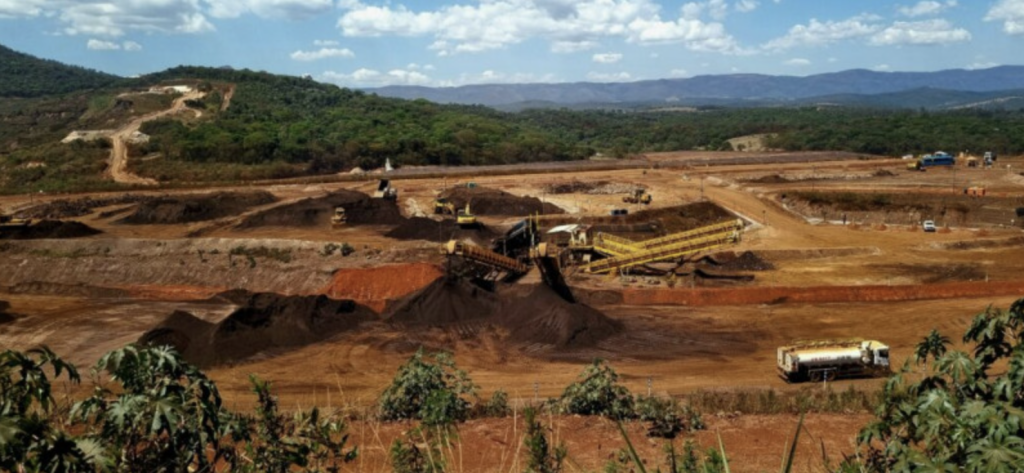
The government of Canada wants to become a closer collaborator with the Dominican Republic in the exploitation of the country’s rare earth elements. The Dominican government in August 2024 announced the incorporation of Emidom, a so-far government-owned company for the exploration and exploitation of the rare earth element mining in the southwest.
The Canadian Embassy last week held a Canadian Mining Seminar: Towards a Sustainable Future, seeking to foster this collaboration. The workshop came on the heels of the recent announcement of US Secretary Marcos Rubio during his visit in early February of the interest of the United States in supporting the same exploration and exploitation. So far, the United States Army Engineer Research and Development Center’s (ERDC) has been participating in the research to determine the local inventories. The ERDC are assisting the Ministry of Energy and Mines and the National Geological Service in the geochemical exploration and potential exploitation of REEs in remote areas of the Dominican Republic.
During the workshop, Energy and Mines Minister Joel Santos spoke of advances made in the Dominican Republic to ensure sustainability of mining. Santos stated that the government is working on the updating of Mining Law 146-71 that has been in force for over 50 years. He said the aim is to modernize the regulatory framework for mining and ensure its long-term sustainability.
During his speech at the workshop on Thursday, 20 March 2025, Santos emphasized that the reform aims to address new sector needs and provide greater legal certainty for both the state and investors.
Santos said the government is working with the private sector to develop new mining policy with a clear vision towards 2028. He indicated that the ongoing project incorporates key aspects such as the responsible exploitation of strategic minerals, environmental protection and impact mitigation, transparency and civic participation, community development in mining areas, as well as innovation and technological transfer.
“We are developing a mining policy with a vision towards 2028, which will allow for legislative updates to ensure that mining continues to be an engine of sustainable development,” expressed the minister. Santos added that the new legislation will incorporate fundamental elements such as the creation of an electronic mining cadastre, enabling more efficient and transparent management of mining concessions. Updated regulations for underground mining and mine closure are also planned, ensuring safer and more responsible exploitation with clear guidelines.
The minister stressed that the reform seeks to balance economic development with environmental protection and the well-being of communities near mining areas.
At the event, Santos highlighted Canada’s role as a key partner in the Dominican mining industry, contributing cutting-edge technology, high environmental standards, and best practices in mining governance.
The minister reported advances in bauxite exploration with rare earth elements in Pedernales, ongoing with the Dominican Mining Enterprise (Emidom), the state entity created to ensure sustainable management of these resources. He noted that since September 2024, studies and analyses have been conducted for resource estimation in 2025 and a first reserve declaration in 2026.
Additionally, he reiterated that the country is working in cooperation with Canada, the United States, and Chile, as well as international organizations such as the Inter-American Development Bank (IDB) and the World Bank, to consolidate a more competitive and sustainable mining sector.
For her part, Canadian Ambassador to the Dominican Republic, Jacqueline Delima Baril, emphasized that Canadian companies investing in the country operate under strict environmental, social, and governance standards. “The Dominican Republic can count on Canada as a committed and reliable partner, always working for the mutual benefit of both nations,” affirmed Delima Baril.
The news comes at a time when Canada is yet to itself become a commercial producer of REEs. Canada is currently a host to several advanced exploration projects and some of the largest reserves and resources (measured and indicated) of REEs worldwide. Reportedly, Canada has 7% of the world’s REE inventories.
During the seminar on Canadian mining, Energy Minister Joel Santos said that determining the actual reserves of rare earths in the southwestern Pedernales province is very important. For more than half a century, bauxite, the raw material for aluminum, had been extracted and exported from Cabo Rojo, Pedernales. Bauxite itself appears to contain amounts of rare earths. Santos said that in 2024 the country began exploration and testing, and the studies will allow the country to form an estimate of amount of reserves, before a formal declaration that is expected by 2026.
The Canadian Embassy workshop featured participation from the president of the Dominican Mining and Petroleum Chamber, Pedro Esteva, and mining advisor to the Ministry of Energy and Mines, Joel Ramírez, who presented an analysis of the main socio-economic indicators of the mining sector. Also in attendance were former President Hipólito Mejía; the commercial attaché of the Canadian Embassy, Linda Hernández; the director general of Mining at the Ministry of Energy & Mines, Rolando Muñoz; the president of the Canadian Mining Association, Pierre Gratton; and representatives from major mining companies operating in the country.
The Pedernales province that has the largest known concentration of REEs is also the focus of major development as a tourism destination. Former Minister of Tourism Francisco Javier García has been emphatic that rare earth element mining is not compatible with tourism development.
Rare earth mining in the United States was abandoned in past years given the high cost of dealing with environmental risks. As a result, the leading rare earth site in the US, Mountain Pass sent US-mined rare earth concentrate to China for processing. Given issues of national security, the US is looking at ways to repatriate rare earth production to the United States or to friendly shores such as the Dominican Republic, as US Secretary of State Marco Rubio explained when visiting in February 2025.
Read more:
Presidency
Listin Diario
Canadian government
Canadian studies on mining and the environment
Newsweek
DR1 News
DR1 News
ERDC
Defense News
24 March 2025

